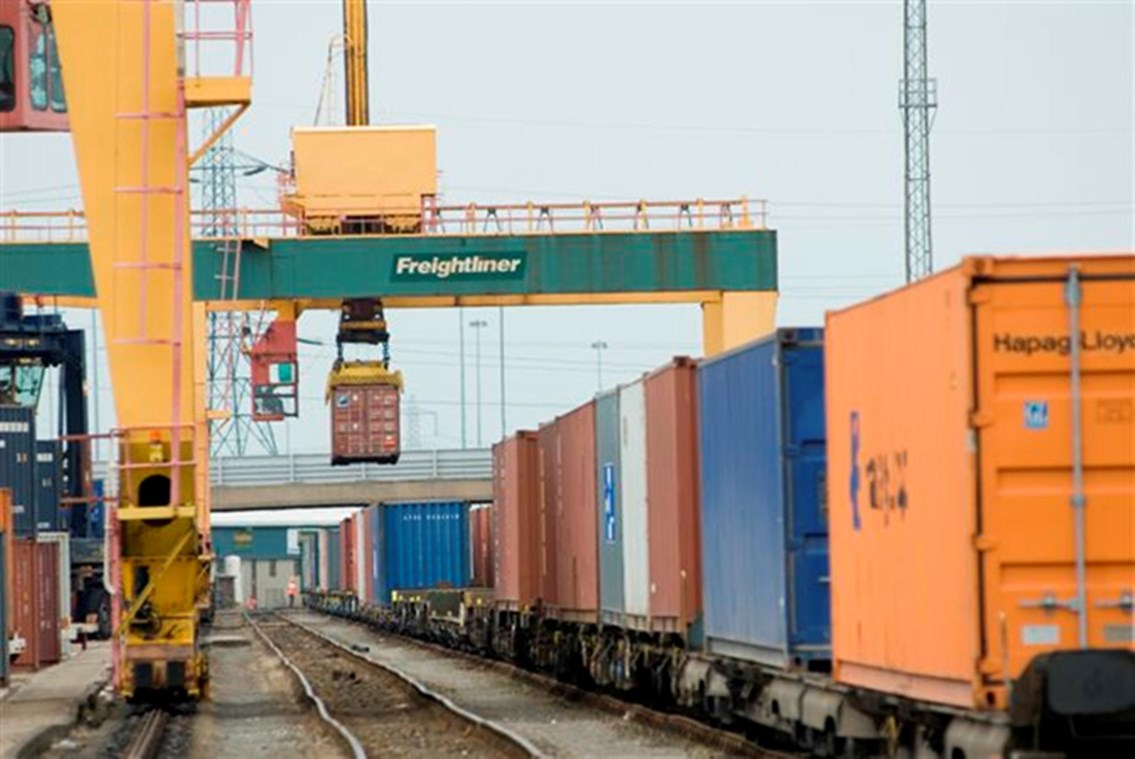Friday 27 Mar 2020
Key railway workers enable 370,000 tonnes of vital food, medicine and other supplies to be moved in a week
- Region & Route:
- Wales & Western: Western
This week alone key workers from Network Rail have enabled more than 370,000 tonnes of freight to be moved between west London and Cornwall and into and across Wales to support the economy, the NHS, petrol at the pumps and food in shops.
Network Rail teams have kept the railway open throughout the coronavirus outbreak and have put steps in place to ensure key workers can get to their critical jobs and to move thousands of tonnes of vital supplies by freight.
A reduced passenger timetable was introduced on Monday so a reliable service would be in operation to get key workers, such as NHS staff, to work while allowing more freight trains to run to meet demand.
Of the 370,000 freight tonnes being moved this week it includes 1,200 tonnes every day of food and medicine for shops, 2,000 tonnes every day of tinplate from Llanelli to create food cans and petroleum products from south Wales to keep the railway’s vital supply chain moving.
Another vital service that has been maintained is the removal of household waste from major cities including London.
The amount of food being moved on the railway by freight across Wales and between west London and Cornwall this week has increased by 20%.
It has been possible to meet this demand thanks to dedication of Network Rail teams who have continued to work as they are listed as key workers by the Government and the help of passengers who have taken advice of only to travel when it is essential.
Mark Langman, managing director for Network Rail’s Wales and Western region, said: “I am incredibly proud of the role Network Rail teams have played in keeping our railway open for key workers and critical freight supplies.
“Without them we wouldn’t have been able to help the NHS or other emergency staff get to their places of work and we wouldn’t have been able to help keep power stations going, petrol at the pumps, medicines available and vital supplies in our shops.
“It has been a challenge particularly operating and maintaining the railway where colleagues are required in the work place. We have had to reduce some of our work to prioritise vital supplies and key workers. We are working closely with government and transport partners and will continue to do so.”
Contact information
Passengers / community members
Network Rail national helpline
03457 11 41 41
Latest travel advice
Please visit National Rail Enquiries
Journalists
Network Rail press office -Western route
MediaRelationsWestern@networkrail.co.uk
About Network Rail
We own, operate and develop Britain's railway infrastructure; that's 20,000 miles of track, 30,000 bridges, tunnels and viaducts and the thousands of signals, level crossings and stations. We run 20 of the UK's largest stations while all the others, over 2,500, are run by the country's train operating companies.
Usually, there are almost five million journeys made in the UK and over 600 freight trains run on the network. People depend on Britain's railway for their daily commute, to visit friends and loved ones and to get them home safe every day. Our role is to deliver a safe and reliable railway, so we carefully manage and deliver thousands of projects every year that form part of the multi-billion pound Railway Upgrade Plan, to grow and expand the nation's railway network to respond to the tremendous growth and demand the railway has experienced - a doubling of passenger journeys over the past 20 years.
Follow us on Twitter: @networkrail
Visit our online newsroom: www.networkrailmediacentre.co.uk

